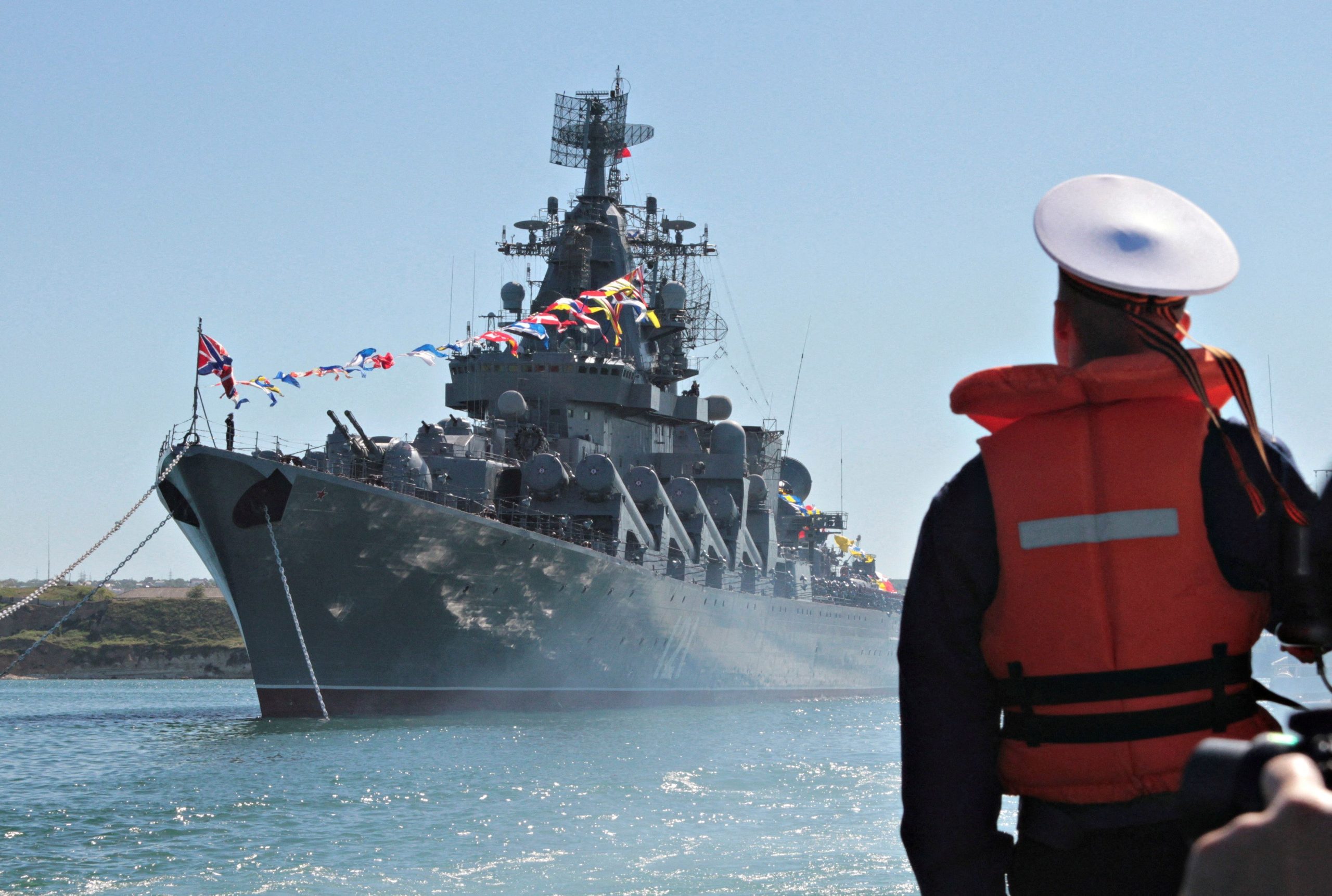
Willie R. Tubbs, FISM News
[elfsight_social_share_buttons id=”1″]
The Moskva, the Russian flagship that famously sunk late last week, could have been carrying a piece of what the Russian Orthodox Church identifies as a piece of the true cross of Jesus.
While no confirmation has been made by the Russian government, Business Insider unearthed a pre-war article in the state-run media outlet Tass in which an archpriest from the Russian Orthodox Church said a small piece of the cross upon which Christ died for the sin of man was being housed in a chapel aboard the Moskva.
“This relic used to belong to a Catholic church but was acquired by anonymous patrons of arts, and it was their will to send the relic to the [Black Sea] fleet,” Sergiy Khalyuta, archpriest of the Russian Orthodox Church’s Sevastopol District, told Tass in the original article. “The Moskva cruiser has an onboard chapel, where services take place.”
According to U.S. intelligence, the Moskva, Russia’s flagship in the Black Sea, was struck by Ukrainian missiles Thursday and later sunk while being towed to port.
Russia disputes this claim and says the Moskva was damaged when ammunition exploded onboard, but reports that all 500 men aboard the ship had survived.
Given the amount of time that passed between the explosion and the actual sinking of the ship, and reports from Russia that all 500 sailors aboard the ship were evacuated, there is a chance the relic could have been removed. However, it has not been confirmed that the evacuation was orderly, and Ukraine has claimed its missile strike claimed some lives.
The matter of the true cross is a peculiar topic among Christians, and not every denomination or believer is convinced any part of the cross survived.
The Catholic and Russian Orthodox churches have a strong belief that St. Helena, mother of the first Roman emperor to convert to Christianity, discovered the true cross in 326 AD and that the cross still exists in fragments across the world. Rufinus of Concordia, an early church historian, wrote that St. Helena confirmed the authenticity of the true cross by having a sick woman touch it and be healed.
“All the pieces of wood distributed or sold as relics across the globe over the centuries (especially since the Middle Ages) have been preciously conserved in a number of churches,” an article on Catholic news site Aleteia reads. “According to various analyses and inquiries, the supposed “true” fragments of Jesus’ cross only make up in volume a tenth of the Cross; all the rest were determined to be of a questionable source. We refer to the likely relics as Lignum Crucis (“wood of the Cross”). The largest fragment is preserved in Greece in the monastery of Mount Athos; other fragments are in Rome, Brussels, Venice, Ghent, and Paris.”
It is impossible to say if the relic housed aboard the Moskva was a part of the cross discovered by St. Helena.
Historically, the number of portions of the supposed true cross to be found in Europe vastly outstripped the amount of wood that would have been a part of St. Helena’s discovery.
In his day, legendary reformer John Calvin noted that so many fragments of the true cross had emerged in Europe that “if all the pieces that could be found were collected together, they would make a big ship-load. Yet the Gospel testifies that a single man was able to carry it.”
Some 300 years after Calvin, American author Mark Twain made a similar observation while writing his book “The Innocents Abroad”.
“We find a piece of the true cross in every old church we go into, and some of the nails that held it together,” Twain wrote. “I would not like to be positive, but I think we have seen as much as a keg of these nails. Then there is the crown of thorns … And as for bones of St. Denis, I feel certain we have seen enough of them to duplicate him if necessary.”
No mention of a Christian relic has been made by the Russian military. Saturday, Reuters reported that Admiral Nikolai Yevmenov, the head of the Russian navy, had met with the crew of the Moskva, but details of the meeting were scant.
Russia’s defense ministry said only that Yevmenov told the men they would remain in the navy.
